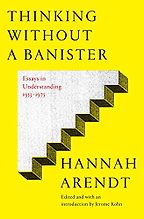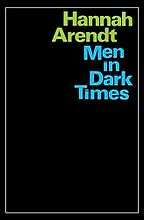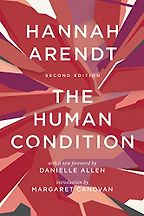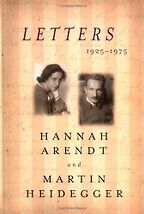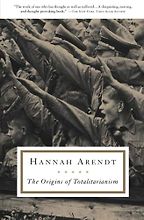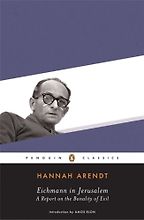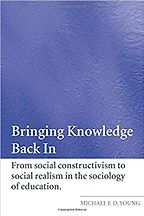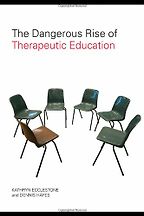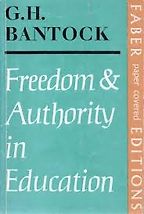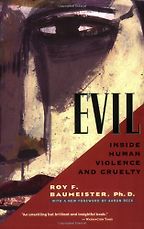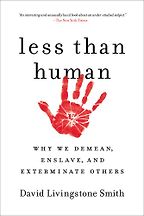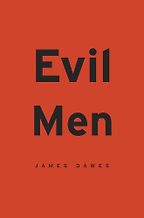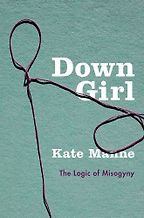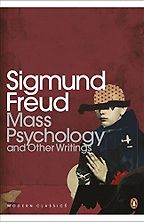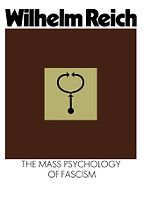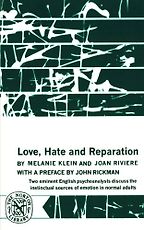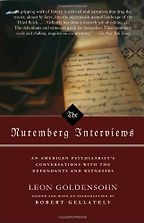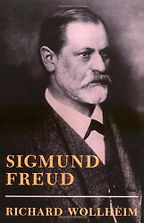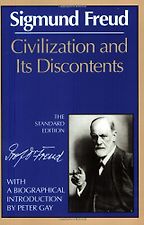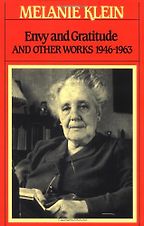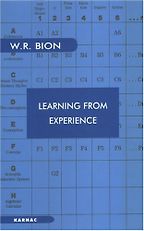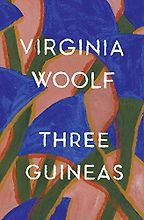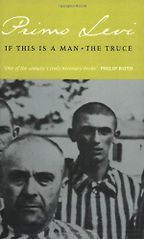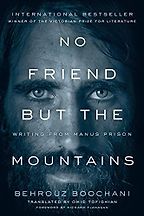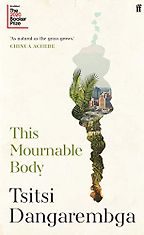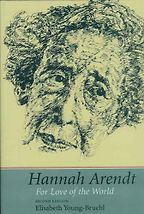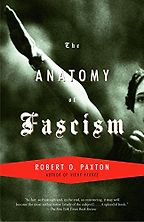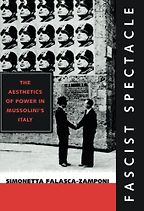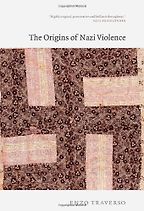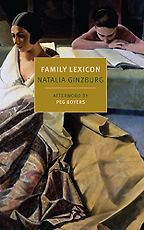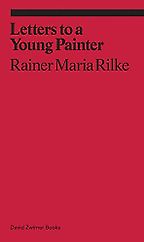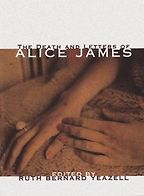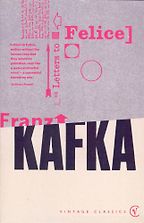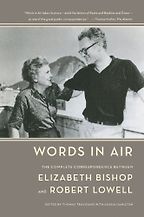Books by Hannah Arendt
“It is an edited volume, which I think is a great introductory overview to Hannah Arendt’s work. It is full of interviews that give you a sense of her as a person, conversations where she’s teasing out what she meant by ‘the banality of evil’—most readers of Arendt are familiar with that phrase, even if they haven’t read Eichmann.” Read more...
The best books on Hannah Arendt
Samantha Rose Hill, Philosopher
“Her essay on ‘Humanity and Our Times’, which she delivered as the Lessing address when she received the Lessing Prize, is a timeless meditation on what it means to retain one’s humanity in dark times … These essays are so intimate in that respect that I think they make themselves available to any reader, and offer portraits of some of the most important political thinkers of the 20th century.” Read more...
The best books on Hannah Arendt
Samantha Rose Hill, Philosopher
“I read The Human Condition as a study of protecting spaces of freedom that are necessary for human action in the world. She writes about these tripartite distinctions between private, social, public and between labor, work, action. She discusses worldly alienation in the modern age.” Read more...
The best books on Hannah Arendt
Samantha Rose Hill, Philosopher
“There was a very real initial intimacy when Heidegger was a professor and married man of 36, and Arendt his 18-year-old student. Then came years following a dramatic separation as Heidegger rose to academic prominence in Germany during the Nazi regime, while Arendt fled to America. In the postwar years, they reached the height of their popularity as thinkers, and kept up the correspondence. There is much profound philosophical thinking here, but also an incredible space of almost poetic intimacy.” Read more...
The Best Literary Letter Collections
Lucas Zwirner, Artists & Art Critic
“The Origins of Totalitarianism is the first great book to try and understand totalitarianism. It’s a book of political theory, as well as a work of history and of philosophy. But it’s also a testimony. She started writing the book when she was a stateless person, a refugee in Vichy France.” Read more...
The best books on Human Rights and Literature
Lyndsey Stonebridge, Literary Scholar
Eichmann in Jerusalem
by Hannah Arendt
German American political theorist Hannah Arendt reported the trial of German Nazi SS leader Adolf Eichmann as a series of articles in The New Yorker magazine.
“This is my favourite book by far, and it the one which has influenced my own writing the most. It’s a compilation of essays written by Hannah Arendt, the most interesting of which is called ‘The Crisis in Education’. The essay is about how this is something which is endemic to modern life. She argues that education is affected by the difficulties society encounters in trying to strike a balance between the traditions of the past and the needs of the future.” Read more...
The best books on The Crisis in Education
Frank Furedi, Social Scientist
Interviews where books by Hannah Arendt were recommended
The best books on The Crisis in Education, recommended by Frank Furedi
The sociology professor and blogger at spiked-online.com says when society is faced with problems like homophobia, healthy eating or integration, for example, then we try to
The best books on Cruelty and Evil, recommended by Paul Bloom
How do evil-doers justify their behaviour? A common view of evil sees dehumanisation as fundamental. Yale psychologist Paul Bloom argues, however, that the picture may not be so simple. The most callous acts of cruelty and evil involve recognising the human feelings of the victim, their ability to feel shame and humiliation.
The best books on The Psychology of Nazism, recommended by Daniel Pick
The historian and author of The Pursuit of the Nazi Mind, Daniel Pick, tells us what we can learn from attempts to use psychology, psychiatry and psychoanalysis to understand Nazism.
The best books on Psychoanalysis, recommended by David Bell
The well-known psychoanalyst explains which books he believes deserve to be the most read on psychoanalysis. His choices include books by Freud, Klein, Bion, Arendt and explanations of why they must be included.
The best books on Human Rights and Literature, recommended by Lyndsey Stonebridge
The connections between human rights and literature are profound and we ignore the humanities and reading at our peril, says Lyndsey Stonebridge, Interdisciplinary Professor of Humanities at the University of Birmingham. She recommends books that best show the complex relationship between literature and human rights, from Auschwitz to Manus Island.
The best books on Hannah Arendt, recommended by Samantha Rose Hill
Unimpressed by the response of philosophers to the rise of Nazism in her native Germany, Hannah Arendt rejected the notion of being a philosopher and said she was a political theorist. Samantha Rose Hill, writer and formerly assistant director of the Hannah Arendt Center at Bard College, talks us through Hannah Arendt’s life and work—and suggests which books to read if we want to learn more about her and her ideas.
The best books on Fascism, recommended by Ruth Ben-Ghiat
In an era of Trumpism and fake news, the word ‘fascist’ is thrown around with increasing ease and little attention paid to its origins and history. Ruth Ben-Ghiat, political commentator and historian at New York University, recommends the best books for understanding fascism’s history and recognizing it today.
-

1
Letters to a Young Painter
by Rainer Maria Rilke -

2
The Death and Letters of Alice James: Selected Correspondence
by Alice James -

3
Letters to Felice
by Franz Kafka -

4
Letters: 1925-1975
by Hannah Arendt & Martin Heidegger -

5
Words in Air: The Complete Correspondence
by Elizabeth Bishop & Robert Lowell
The Best Literary Letter Collections, recommended by Lucas Zwirner
The Best Literary Letter Collections, recommended by Lucas Zwirner
The next release in the ekphrasis series from David Zwirner Books is Oscar Wilde’s The Critic as Artist, including an introduction by Michael Bracewell and a colour portrait of Wilde by Marlene Dumas. Head of Content Lucas Zwirner talks to Five Books about the inspiration he’s drawn from literary letters and how they inform the editorial direction of the publishing house.
